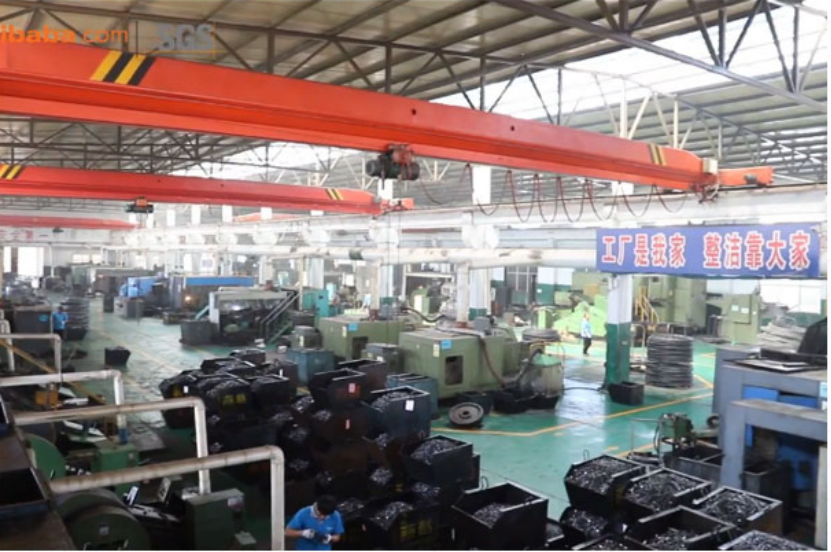307 bolts suppliers
Sep . 19, 2024 05:45 Back to list
307 bolts suppliers
Bolts Suppliers A Comprehensive Overview of the Industry
In the industrial world, the importance of high-quality fasteners cannot be overstated, and bolts, in particular, play a crucial role in ensuring the integrity and reliability of mechanical assemblies. With diverse applications ranging from construction to automotive manufacturing, the demand for bolts has led to a thriving market for suppliers specializing in this essential component. This article delves into the landscape of the bolt supply industry, examining key suppliers and what they offer, as well as the factors influencing their operations.
The Role of Bolts in Various Industries
Bolts are critical in many sectors, including construction, machinery, automotive, and aerospace. These fastening elements are designed to hold parts together securely, often under significant stress and varying environmental conditions. As a result, the material, design, and manufacturing process of bolts are of paramount importance. Common materials include carbon steel, stainless steel, and titanium, each chosen for their specific properties such as strength, corrosion resistance, and weight.
Leading Suppliers in the Market
The bolts supply industry is populated by a multitude of manufacturers and suppliers. Some of the leading players create a significant impact through their extensive product ranges and technological advancements. Companies such as Fastenal, Grainger, and McMaster-Carr are recognized for their comprehensive inventories, which cater to a broad spectrum of customer needs. These suppliers not only provide standard bolt sizes and types but often offer customization options, enabling manufacturers and builders to source precisely what they require for specific applications.
307 bolts suppliers

In addition to these industry giants, there are numerous regional suppliers that specialize in specific niches or types of bolts, such as high-strength bolts for the construction industry or stainless steel bolts for marine applications. These suppliers usually emphasize customer service and technical support, helping clients select the proper fasteners for their projects.
Factors Influencing the Supply Chain
The bolts supply chain is influenced by several factors, including raw material availability, production capabilities, and market demands. Recent global events, such as the COVID-19 pandemic, have illustrated vulnerabilities in supply chains, causing delays and increased costs. Suppliers have had to adapt by diversifying their sources of raw materials and investing in more efficient manufacturing techniques.
Sustainability is also becoming an essential consideration for both suppliers and consumers in the bolts industry. Many suppliers are exploring eco-friendly materials and more sustainable manufacturing processes. This shift not only meets regulatory requirements but also appeals to increasingly environmentally-conscious customers.
Conclusion
The bolts supply industry is an integral part of the broader manufacturing and construction sectors. With several reputable suppliers in the market, businesses have access to a wide array of products that meet diverse needs and specifications. As technology advances and market dynamics evolve, suppliers must remain agile and innovative to keep pace with changing demands. The future of the bolts supply industry looks promising, driven by continuous improvement in product offerings and a steadfast commitment to quality and sustainability. Whether you are a large manufacturer or a small contractor, understanding the landscape of bolts suppliers can significantly enhance your operational effectiveness and project success.
Latest news
-
High-Quality Panel Stud Bolt Reliable Panel Stud Bolt Factory & Suppliers
NewsJul.08,2025
-
High-Precision Fine Thread Locknuts Manufacturer & Supplier Custom Solutions
NewsJul.08,2025
-
PH Imperial Stud Bolt – High Strength Fasteners from Leading Supplier & Factory
NewsJul.07,2025
-
High-Quality Allen Wrench Bolts Leading Factory, Company & Suppliers
NewsJul.07,2025
-
Wholesale Ball Stud Bolt - High Quality Supplier & Factory Price Reliable Wholesale Ball Stud Bolt Company
NewsJul.06,2025
-
High-Strength Alloy Bolts Manufacturer & Supplier Quality Alloy Fasteners Factory
NewsJul.06,2025
